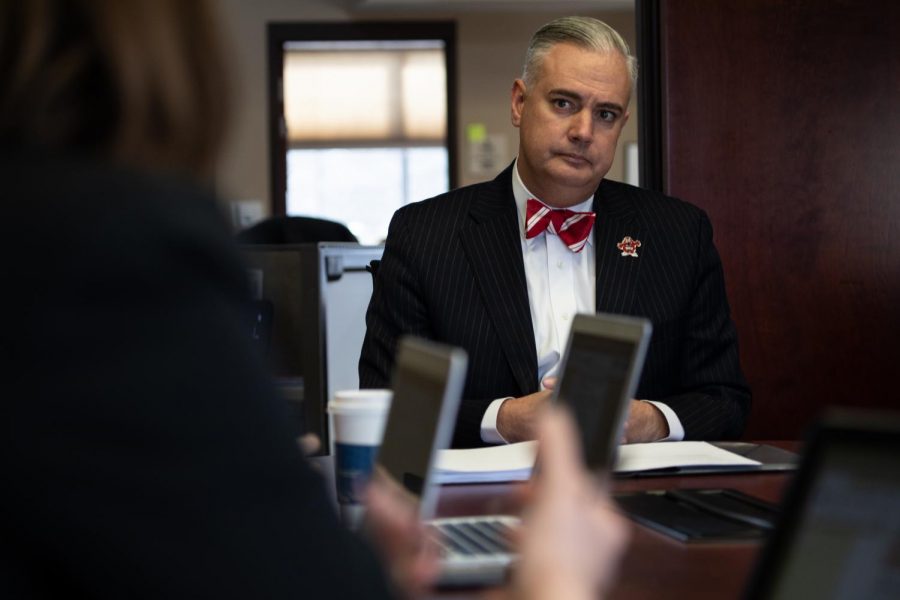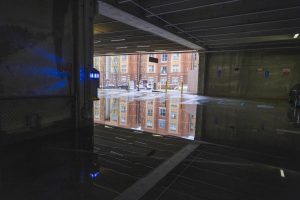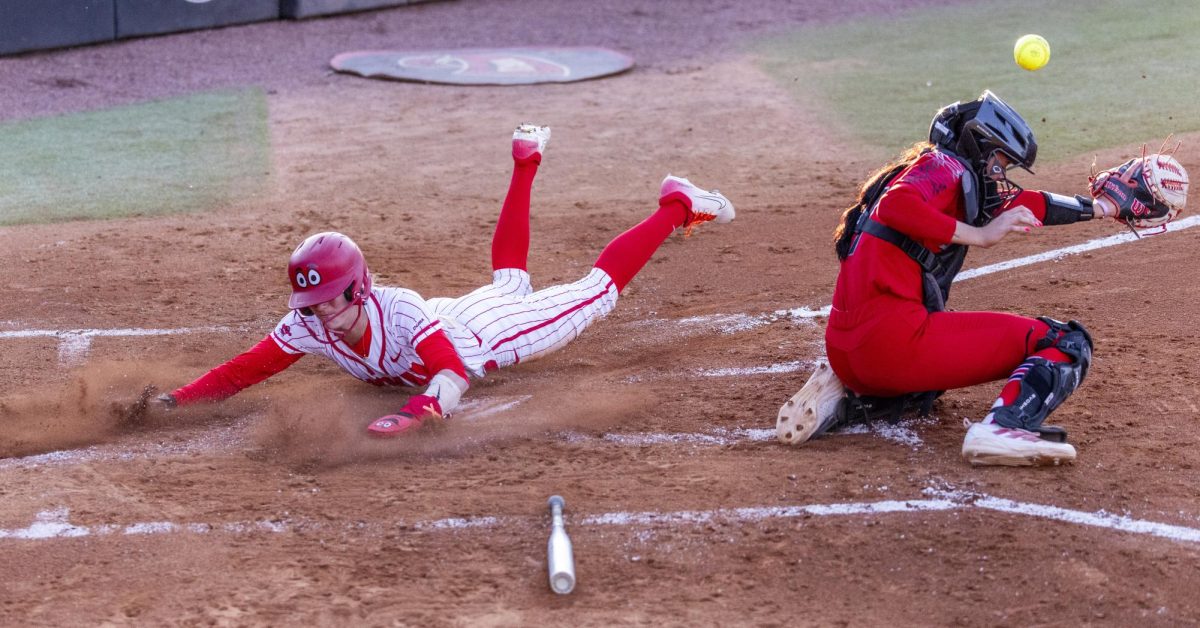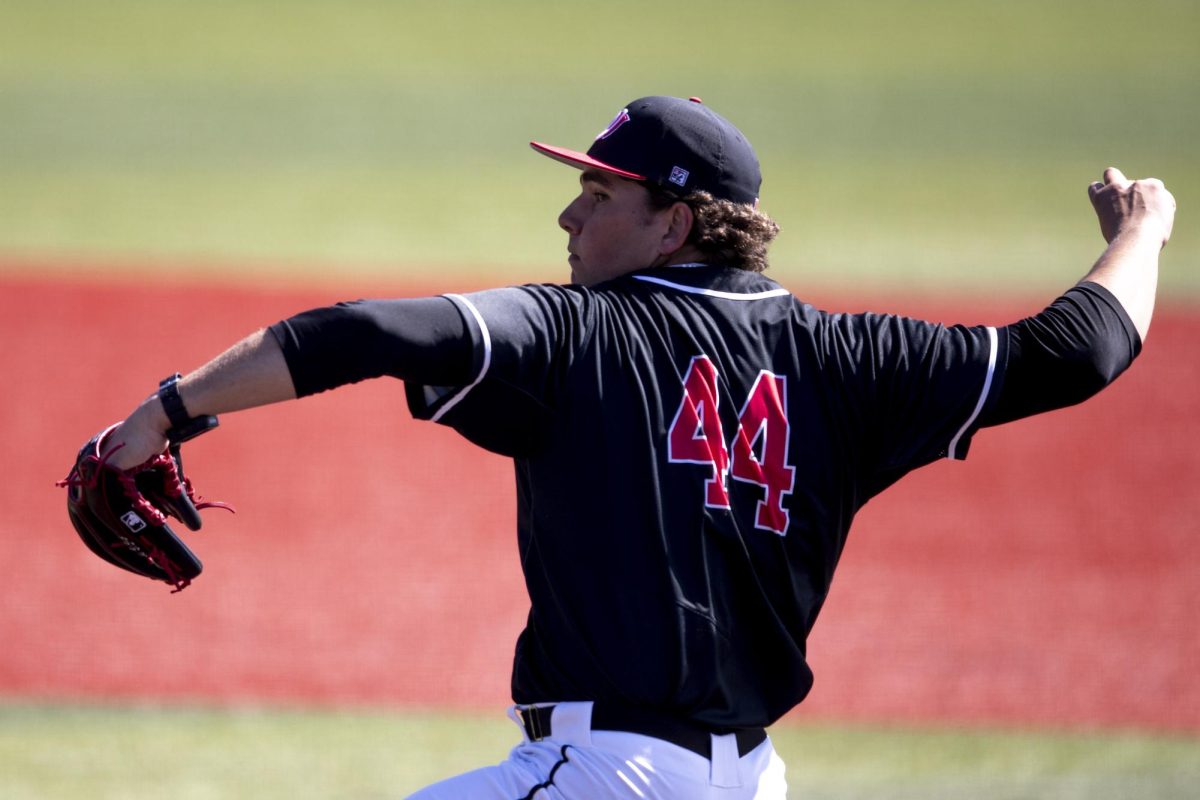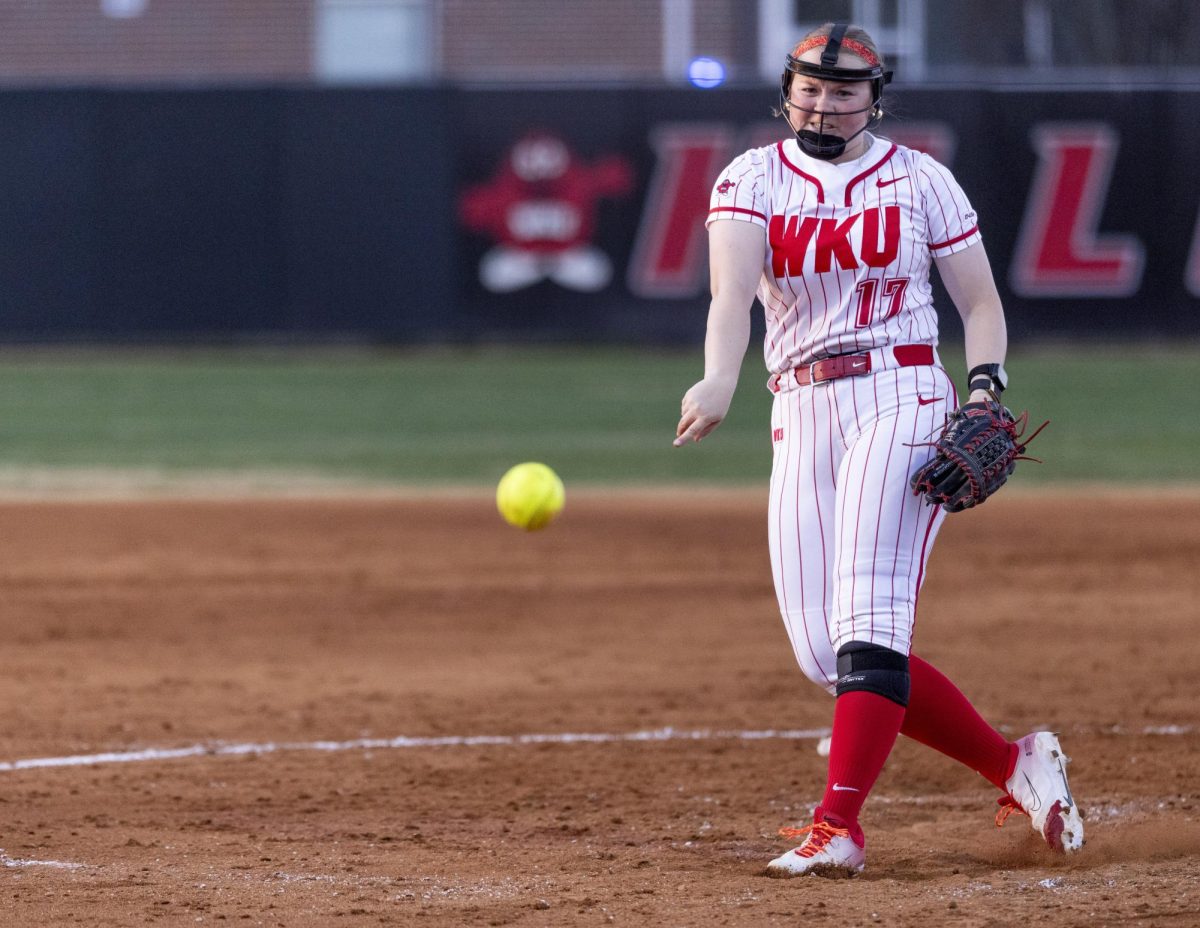7 things to know before the semester starts
January 22, 2020
At the end of Fall 2019 semester, the university was facing changes in academics and questions about the university’s values.
On Wednesday in a semesterly meeting with the Herald Editorial Board, WKU President Timothy Caboni provided clarity and discussed what the university can expect in the upcoming semester.
Greek culture review after racial slur incidents
A group headed by Brian Kuster, WKU’s vice president for enrollment and student experience, and Dean of Students Lynne Holland is being formed to review Greek culture after three videos surfaced which included members of Greek organizations using a racial slur in song.
The university responded to the first two incidents similarly, delegating disciplinary responsibility to each organization’s national chapter. Bob Skipper, WKU director of media relations, said members also went through trainings on “how certain things can be perceived and misunderstood and for people to be more thoughtful about things they might post on social media.” The trainings were focused on sensitivity and social media postings, Skipper said.
The university made this decision because the sororities’ actions were “ill advised but not malicious,” Skipper said. The administration saw a difference between yelling the slur at someone directly and singing it in song.
These decisions were met with controversy, including a protest to remove one organization from campus, Alpha Xi Delta, and a Student Government Association resolution demanding the same organization’s removal. Both of which sparked on-campus discussion.
But after a third video surfaced in November, Kuster, WKU’s vice president for enrollment and student experience released a statement, saying a review of Greek organizations would be conducted to ensure its members “understand the importance of inclusion at WKU and how their behaviors affect others and the perception of our entire university.”
Similarly, the Inter Fraternity Council said it would implement an education program into its meetings.
“That behavior is unacceptable on our campus,” Caboni said. “No white student should be using the N-word on our campus. It doesn’t comport with our values, our expectations for who we are as a university which is a place where every student who’s here feels included and a part of our campus.”
Caboni said part of the conversation which needs to be had in the Greek community is asking what the effects of words are.
“If you’re hurting other people through your use of language you need to understand what that is and why that is,” Caboni said. “I was disappointed, and my hope is the Greek community and those involved in this will learn and important lesson from it.”
Read more: ‘Words are powerful’: Racial slur incidents spark on-campus discussion
Addressing employee insecurity and faculty non-renewals
At the end of the fall semester at least five faculty members were informed their positions were being eliminated starting June 30, 2020 which prompted a Faculty Senate resolution calling for the university to rescind the layoffs.
Caboni said the letters were sent in accordance with WKU’s policy when contracts are not renewed. Because WKU has a decentralized budget model, he said each college dean was able to make their own personnel decisions based on the course load, course demands and faculty resources.
“Those instructor positions, as important as the people were in the college community, the need for that instructional work wasn’t necessary, given the makeup of the college,” Caboni said. “I know that’s a different way of thinking for the university, and certainly a different way of Dean’s taking a look at how they’re managing their academic workforce.”
Caboni defended the decision to not renew some faculty contracts because of economic and academic needs, but said faculty members should have not been informed over email.
“That’s a conversation that should always occur in person, period. That meets our values,” Caboni said.
At the Faculty Senate meeting, several employees expressed a lack of security at WKU because of the letters along with other academic changes. Caboni said it is typical for contracts to not be renewed, but could understand how that makes some people uncomfortable.
“I had a three year contract at Vanderbilt, at one point in time,” Caboni said. “Did I get renewed? Yes I did. Was a guarantee that I was going to be renewed? No, it wasn’t. Is that comfortable? It depends upon who you are.”
Read more: ‘Tough time for everyone.’ Instructors left insecure by sudden cuts
Changes coming to academic calendar
Caboni responded to questions regarding the length of winter break which includes a four week long winter break, two weeks less than this year’s.
The schedule also shows winter term classes beginning the first week of winter break, Dec. 14, and then having a week off between Dec. 21 and Jan. 1, then resuming until Jan. 14.
Caboni said he spoke with the administration about how to alter the calendar in a way that will best support students and hopes this change will aid in student retention.
With the current academic calendar structure he said students, especially first generation or low-income students, may have a hard time transitioning between school and home.
“The transition from home to college is a difficult one because it’s such a different environment than they may be used to at home, and think about what that feels like for some of our students,” Caboni said. “They’re here, they’ve learned things that they haven’t, you all learn things you would never been exposed to before. Some of them may begin to speak differently, and then all of a sudden they go back to the culture from which they came and how painful that can be.”
Caboni hopes the First-year village and WKU Commons will boost student retention
Caboni gave an update on the progress of the first-year village, a living-learning community for incoming freshmen, saying the first complex will be completed in spring 2021. The rest of the village is on schedule to open fall 2021.
Caboni said in the first-year village “pods,” students will be able to have peer advisors as well as an advisor in their living-learning community.
“For me, again, it’s focused on student success,” Caboni said. “It’s not about buildings, even if the buildings are impressive.”
Caboni also emphasized the need for an “advising anchor” for students in their first two years that they can keep coming back to in order to build a “mentor relationship.”
Caboni said Margie Helm library, the former basketball facility, has been completely gutted. He said the transformation of the library into the WKU Commons will be the “third iteration in the life of that facility.”
He said his expectations for the Commons is that it will be a place where faculty, staff and students will gather to work together on projects, with a portion of that time happening over a meal.
Politics in the classroom
Gov. Beshear, elected last year, promised increased funding for schools. In a proposal to the state from higher institutions, WKU is asking for about $37 million to maintain campus assets.
“There are a host of projects that keep this place running that aren’t — for lack of a better word, sexy — but are necessary,” Caboni said.
Some of these necessary projects are maintaining the infrastructure, such as underground steam lines and information technology systems, and updating buildings like Grise Hall.
With the 2020 presidential election looming, Caboni said one of the university’s important goals is to help young people be civically engaged.
“It’s not about, sometimes, right or wrong. Sometimes it’s about different ways of getting to the same result. We have to be willing to sit down, and not just talk, but to listen,” he said.
In the past, WKU students had classes on the same day as state and midterm elections, which some students argued makes it more difficult to participate.
“One day, you all are going to graduate and join the real world. And in the real world, you have to make time in your lives to vote–before work, after work, on lunch breaks, with absentee ballots,” Caboni said.
Despite the remarks, after the meeting Bob Skipper, director of Media Relations, clarified that classes were cancelled on Nov. 3 for election day.
‘I believe in my heart of hearts that we can be excellent at many things’
The Faculty Senate passed a resolution asking the university to transfer funding from athletics to academics on Dec. 12. When asked about the resolution, Caboni said the statement WKU spokesman Bob Skipper released from Provost Cheryl Stevens and Executive Vice President for Strategy, Operations and Finance Susan Howarth “speaks for itself.”
“The total college experience at WKU is critical to the university’s recruitment and retention efforts, and athletics are an important part of that work,” a portion of the statement read.
Caboni said “athletics is an important part of the WKU experience” that gives the university an advantage when it comes to recruitment. “Some portion” of undergraduate students attend WKU because they “have an expectation” they’ll be able to attend Division I athletics, Caboni said.
He also said that he believes WKU is “more effective at focusing on things that grow the pie instead of shifting resources,” which has made recruitment and retention so crucial lately.
“I believe in my heart of hearts that we can be excellent at many things,” Caboni said. “Student experience, forensics, student media, football, soccer and anything else you can think of on this campus — dance, theater. We can do all of those things and do all of them well and have resources for everyone. The way we get to that place is through recruiting students and retaining students. Period. And so, that’s where my time is spent.”
Retention rates continue to show progress
Caboni touted the university’s improved retention numbers, saying it shows the success of his recent policy changes, though the numbers won’t be official until November.
“We wanted to reiterate the work that we’ve been doing to help more people who were here in their first year be here in their second year,” Caboni said. “We’ve gone through a range of interventions to make that happen.”
Caboni had previously said improving retention was one of his biggest goals as president, and introduced measures such as the Summer Scholars program to meet that objective.
“This is just one of many indicators of an improved trajectory of success caused by the work of the entire campus focused on one thing,” Caboni said. “All of our students and all of our learners being successful.”
Retention rates jumped from 68.2 overall retention in the fall of 2017 to 70.3 in fall of 2018 according to preliminary number.
The first print edition of the College Heights Herald for the Spring 2020 semester will be available on Tuesday, Jan. 28.
Editor’s note: During the meeting Caboni said there would still be classes on election day, Nov. 3. Later, Director of Media Relations Bob Skipper said classes were cancelled according to the university calendar. The original story also said the first issue will be available in August. The correct date is Jan. 28. The story has been updated and the Herald regrets these errors.
Rebekah Alvey, Laurel Deppen, Matt Stahl, Natasha Breu, Julie Sisler, Jake Dressman and Drake Kizer contributed to this article.

